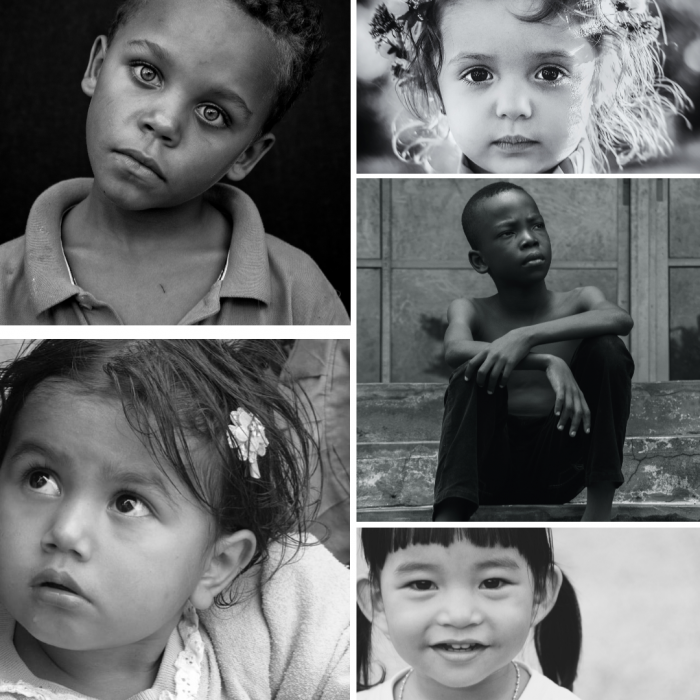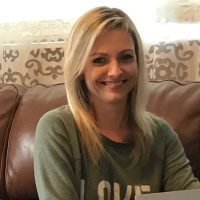After nearly 15 years working in education, I tend to see things through the lens of how it impacts children. I tend to see things through their eyes; what they must be thinking and feeling. I see things through the lens of what we, as adults, are modeling for them.
Five weeks ago when I heard the story of Ahmaud Arbery being gunned down while jogging, I felt sick to my stomach that a life was lost so senselessly. When I heard of the equally senseless murder of George Floyd only four weeks later and that, in his last desperate moments, he called out for his mama, I cried. As a mother myself it took my own breath away and made me physically sick to my stomach. I believe black lives absolutely do matter. And while I of course also believe that all human lives matter, I’ve come to understand that the reason we choose the words “black lives matter” at this time is to put the focus and support on the black lives that, lately, seem to very clearly not matter to some who are white.
I looked at what happened to Mr. Arbery and Mr. Floyd and thought of our kids and what they must be thinking and feeling; about what we’re modeling.
And, while the anger and frustration over not being heard for so long is understandable, I looked at the riots and looting going on and once again thought of our kids and what they must be thinking and feeling; about what we’re modeling.
I saw and heard some of the things being said about law enforcement and thought of our kids; about how confusing it must be to try and make sense as to whether police officers are there to help them or hurt them.
I saw the #blackouttuesday movement that was happening online and thought about what a powerful, united statement it seemed, but I also like to take a minute to research anything before I jump into posting, just to be sure that the message and intention behind it is something that aligns. As I researched, I saw that there were people within groups and pages I am a part of saying things like “if you don’t participate in this, you are making a statement that you don’t believe black lives matter” or that if we say anything at all on the topic as a white person, we are undermining the message. Once again, I thought of what we’re modeling for our children. We say we want to teach them not to make judgments and assumptions about people before getting to know them; to not incite peer pressure or bully others and to be inclusive, yet it seemed some of our actions spoke differently.
We all know far too well by now that bullying, especially online, is a day-in, day-out reality in the lives of millions of our children–we’ve lost lives unnecessarily to this issue as well. And yet, yesterday, I saw two prominent figures in education–while I believe well-intentioned–modeling the exact behavior we say we don’t want to see. One stated he/she would unfriend anyone who didn’t participate in the online black-out movement and the other said that, if you didn’t actively go into the streets & protest, you were part of the problem…that, through your absence, you were showing who you side with.
I wanted to ask both of them about a friend of mine with cancer, currently sick from chemo treatments. If she was too sick to attend a protest and spent the day in bed, never going online to even know the black-out was going on, was she then racist? Part of the problem? Because, I assure you, she has a beautiful heart full of love for all races.
What are we modeling?
I wholeheartedly support any action that elevates black lives and voices, but just because someone does not put a black rectangle on their social media page or doesn’t attend a protest, that does not mean they have hate in their hearts. And, on the flip side, just because someone participates in something, it doesn’t necessarily mean there isn’t hate or bias in them and that they’re not just posting it out of pressure or fear of being judged or labeled. We don’t know what’s truly in the hearts of people we haven’t met and, in my opinion, it shouldn’t be our concern. Our concern should be our own hearts and choices.
Again I ask, what are modeling for our kids? From my view, it looks like we’re once again modeling extremes and division–us against them; that the world’s black and white, not shades of gray. Many of us are modeling racist behavior, violence, peer pressure, and cyberbullying. But there’s also a lot of good-hearted people who don’t have a racist bone in their body, who may not even be on social media, that are praying we get our act together, for each other and for our kids.
For the life of me, I’ll never understand what’s so difficult about just loving one another.
I can tell you from my years in education that kids don’t repeat what we say, they absorb WHO WE ARE. What we should be modeling for our kids is love, inclusion, and not making assumptions about people before getting to know their hearts. And no, we shouldn’t just pass on platitudes, we should take action as well. For me, I had the realization through all this that I need to share more diverse voices, and therefore more perspectives, on my page from women of color. But that choice is not coming from pressure, that choice feels authentic to me.
We all learn and evolve and grow at different paces and it’s my belief that people should take AUTHENTIC action when and where and how it feels right to them, not simply go through the motions with fear being the driving force behind it. Encouraging people to take action is a wonderful thing to model for our kids, but threatening and intimidating is not.
In the midst of all this, someone informed me that, when speaking on this topic, I should be careful not to make it about me and, instead, let voices of color be heard; that it’s, in fact, preferable if we stay silent on the matter. Yet I’ve also read that silence is complicity. So I don’t know if I’m going about this right. But I do remember back when I was in pain over the loss of a baby we were expecting that when everything fell silent for the first few days, when people seemed scared to talk to me and told me later “I just didn’t know what to say” I thought to myself “I just wished you would’ve said that!” Feeling ghosted made the grieving harder.
So, while comparing my personal pain to the pain of racial injustice is an unfit comparison, it does make me realize that saying something from a place of humble vulnerability is better than not saying anything at all. I suppose this is my attempt at saying “I don’t know if I’m doing this right, but I’m here.” I’ll continue to be open and to learn, and as I do, I’ll pass those learnings on to my kids–both the ones I teach and my own. I’ll try to show them how to be inclusive, how to be patient with people’s growth, and to err on the side of love and understanding when we’re not sure we understand their choices, but I will not model bullying and intimidation as a catalyst for growth. I will show them that I’m humbly learning and trying to grow as a person and that, when I’m able to do better than I am right now, I will.
In all that I do, I’ll continue to ask myself “what am I modeling for the kids? I hope you’ll do the same.







Read 0 comments and reply